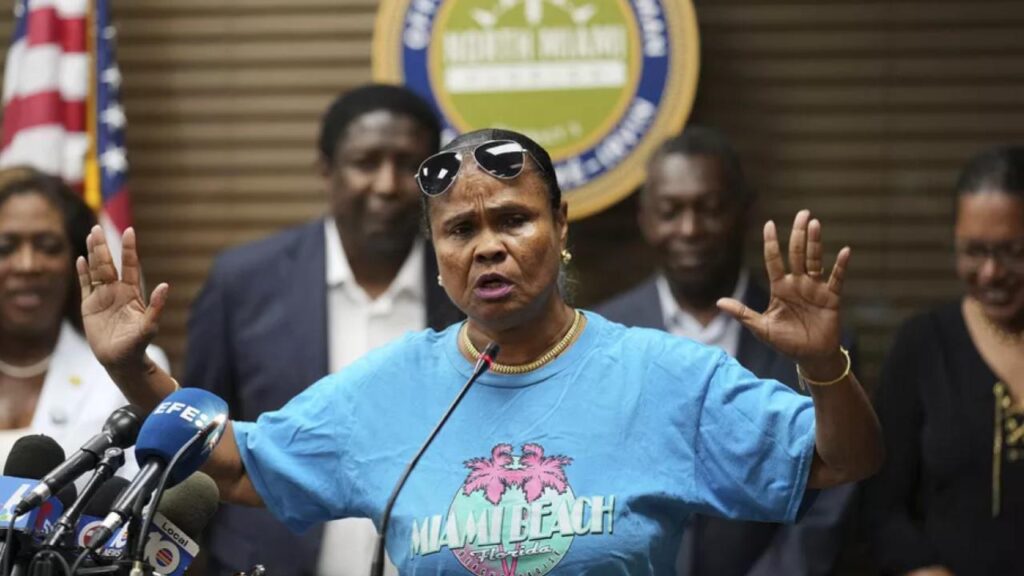In early July 2025, the Trump administration moved to end Temporary Protected Status (TPS) for Haitians, a humanitarian program that has allowed over 500,000 Haitians to live and work legally in the U.S. The announcement triggered legal challenges, community uproar, and growing fears of mass deportations and economic turmoil. If you’re wondering what this means for Haitian families and the broader U.S. economy, here’s the full breakdown.

Trump Just Canceled TPS for Haitians
| Key Insight | Stat / Impact |
|---|---|
| Haitians affected | ~520,000 people face loss of legal status |
| Legal reprieve | Federal court reinstates TPS through Feb 2026 |
| Deportation costs | Ending TPS for three nations may cost $3.1B |
Ending TPS for Haitians would uproot hundreds of thousands of lives, damage the U.S. economy, and potentially fuel a humanitarian disaster. The court has hit pause, but the battle is far from over. For now, Haitians on TPS live in a state of limbo—working, waiting, and hoping for a more permanent solution.
What is TPS and why it matters
TPS, or Temporary Protected Status, grants legal stay and work rights to immigrants from nations suffering natural disasters, war, or political crises. For Haitians, TPS began after the catastrophic 2010 earthquake and continued amid gang violence, cholera outbreaks, and governmental collapse. Today, many Haitian TPS holders are deeply rooted in American communities—raising families, owning homes, and working vital jobs.
Why Trump ended it
On June 28, DHS Secretary Kristi Noem claimed conditions in Haiti had improved, arguing TPS no longer met statutory requirements. The order slated the program to end by September 2, 2025—five months earlier than Biden’s original extension to February 2026.
This decision wasn’t isolated. The administration has pushed to end TPS for multiple countries, including Venezuela and Afghanistan, as part of its broader rollback of humanitarian protections.
Court blocks early termination—for now
Immigrant advocates swiftly filed suit, and on July 1, a federal judge ruled that DHS violated procedural norms by shortening the extension. U.S. District Judge Brian Cogan reinstated the February 2026 end date, preserving legal status and work permits for now. The government plans to appeal, so uncertainty looms.
“The abrupt end was legally flawed and devastating to families,” said Marleine Bastien, a longtime Haitian-American activist. “This win gives us breathing room.”

What’s at stake
1. Mass deportation risk: If the appeal succeeds or TPS ends in 2026 without renewal, up to 520,000 people could face removal. Many have U.S.-born children, jobs, and mortgages.
2. Economic impact: TPS holders contribute billions in taxes and wages. Deporting them could cost $3.1 billion and leave labor gaps in health care, hospitality, and construction.
3. Humanitarian crisis: Haiti remains under travel advisory due to gang warfare and instability. Deportations could place lives at risk.
Firsthand view: Lives on hold
As a reporter who’s spent time in Little Haiti, Miami and Flatbush, Brooklyn, I’ve met dozens of TPS holders. They’re not “temporary” in any real sense. They run stores, coach soccer, send kids to college. One woman told me she hadn’t been back to Haiti in over a decade—her daughter, born in Florida, only speaks English. The fear now isn’t just about legal papers. It’s about losing everything.
What happens next?
- DHS will appeal the ruling. A higher court could reinstate the September 2025 cutoff.
- TPS holders may seek other legal options, like asylum or family-based visas.
- Congress could act, though immigration reform remains politically gridlocked.
What you can do
- If you or someone you know has TPS, consult a licensed immigration attorney.
- Employers should monitor EAD updates to stay compliant.
- Community groups can help with legal clinics, outreach, and donations.
FAQs
Can Haitians still apply for TPS?
No. TPS re-registration has closed. Only those already enrolled are covered.
Can TPS holders get green cards?
TPS alone doesn’t lead to permanent residency. Some may qualify through family or work.
What if conditions in Haiti worsen?
DHS could redesignate TPS, but that requires a new process and political will.






